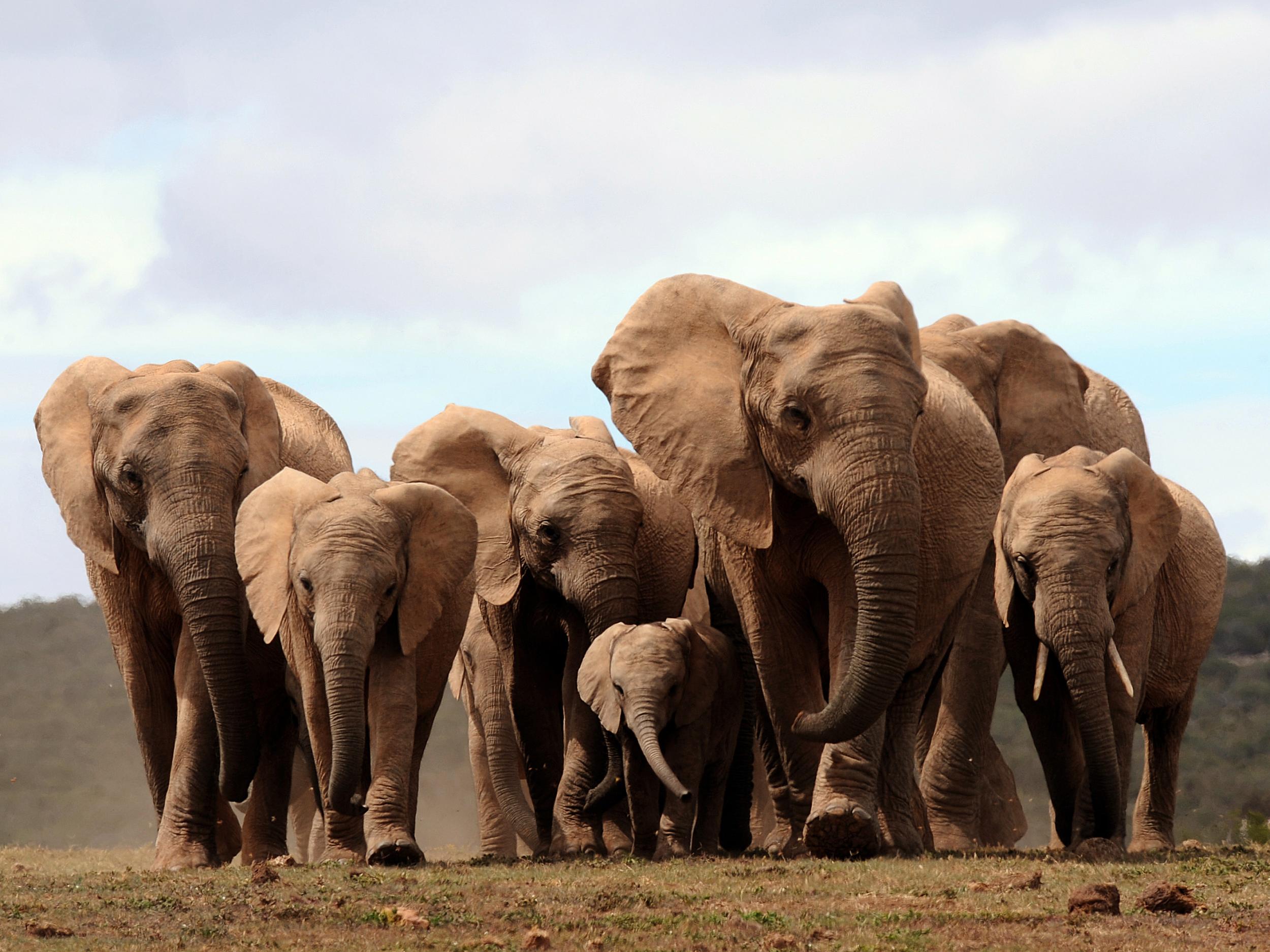African elephants are being born without tusks due to poaching, researchers say
The species could become extinct in some areas, with those elephants that do survive evolving to be almost completely tuskless

Your support helps us to tell the story
From reproductive rights to climate change to Big Tech, The Independent is on the ground when the story is developing. Whether it's investigating the financials of Elon Musk's pro-Trump PAC or producing our latest documentary, 'The A Word', which shines a light on the American women fighting for reproductive rights, we know how important it is to parse out the facts from the messaging.
At such a critical moment in US history, we need reporters on the ground. Your donation allows us to keep sending journalists to speak to both sides of the story.
The Independent is trusted by Americans across the entire political spectrum. And unlike many other quality news outlets, we choose not to lock Americans out of our reporting and analysis with paywalls. We believe quality journalism should be available to everyone, paid for by those who can afford it.
Your support makes all the difference.An increasing number of African elephants are now born tuskless because poachers have consistently targetted animals with the best ivory over decades, fundamentally altering the gene pool.
In some areas 98 per cent of female elephants now have no tusks, researchers have said, compared to between two and six per cent born tuskless on average in the past.
Almost a third of Africa’s elephants have been illegally slaughtered by poachers in the past ten years to meet demand for ivory in Asia, where there is still a booming trade in the material, particularly in China.
About 144,000 elephants were killed between 2007 and 2014, leaving the species at risk of extinction in some areas. Meanwhile those African elephant populations that do survive could become virtually tuskless, like their Asian cousins, researchers have warned.
Joyce Poole is head of the charity Elephant Voices and has been tracking developments in the species for more than 30 years. She told The Times she had seen a direct correlation between the intensity of poaching and the percentage of females born without tusks in some of the herds she monitored.
In Gorongosa National Park in Mozambique, 90 per cent of elephants were slaughtered between 1977 and 1992, during the country's civil war. Dr Poole said that because poachers disproportianetly targetted tusked animals, almost half the females over 35 years of age have no tusks, and although poaching is now under control and the population is recovering well, they are passing the tuskless gene down to their daughters: 30 per cent of female elephants born since the end of the war also do not have tusks.
“Females who are tuskless are more likely to produce tuskless offspring,” she said.
The most striking example is in the Addo Elephant National Park in South Africa, where 98 per cent of female elephants have no ivory. Big game hunters there had killed all but 11 elephants by the time the park was created in 1931. Four of the eight surviving females were tuskless.
In 2008, scientists found that even among elephants that remained tusked, the tusks were smaller than in elephants' a century before – roughly half their previous size.
Although not having tusks may protect elephants from poaching, it not ideal.
“Tusks are used to dig for food and water, to dig up trees and branches and move them around, for self-defence and for sexual display," the BBC reported.
“Conservationists say an elephant without tusks is a crippled elephant."
Join our commenting forum
Join thought-provoking conversations, follow other Independent readers and see their replies
Comments